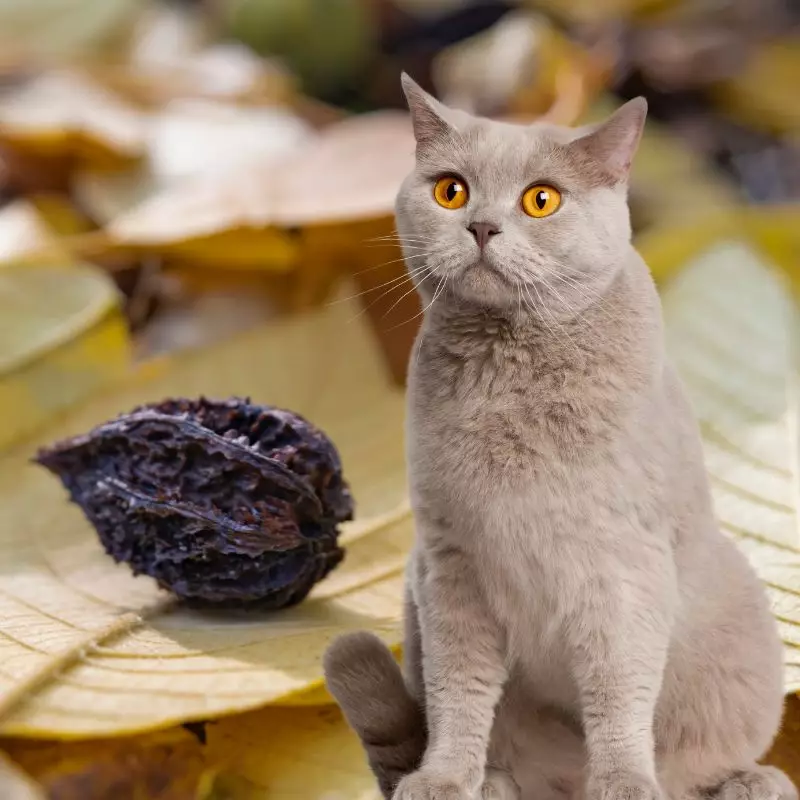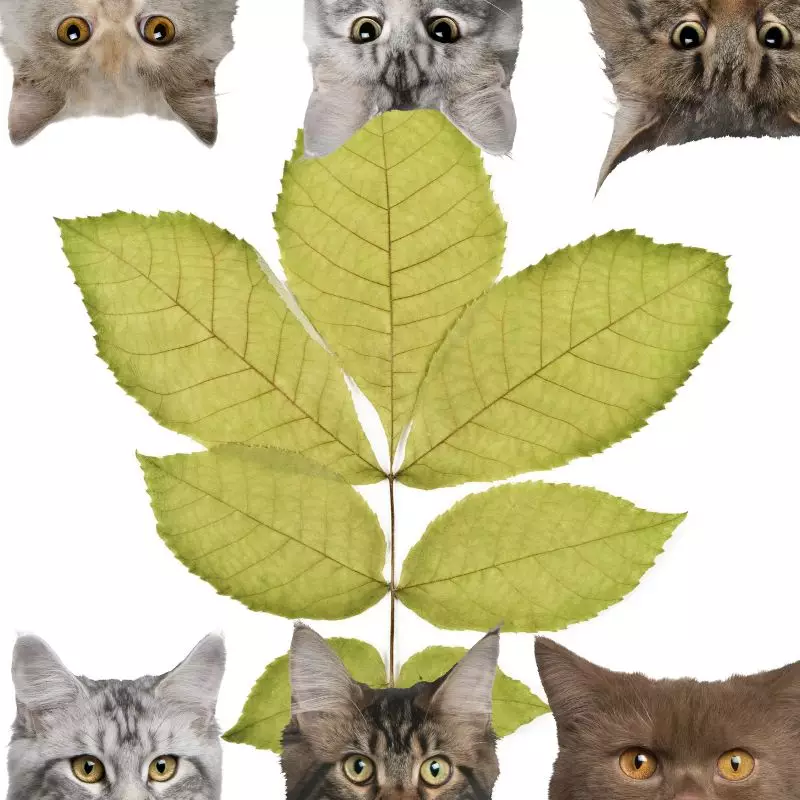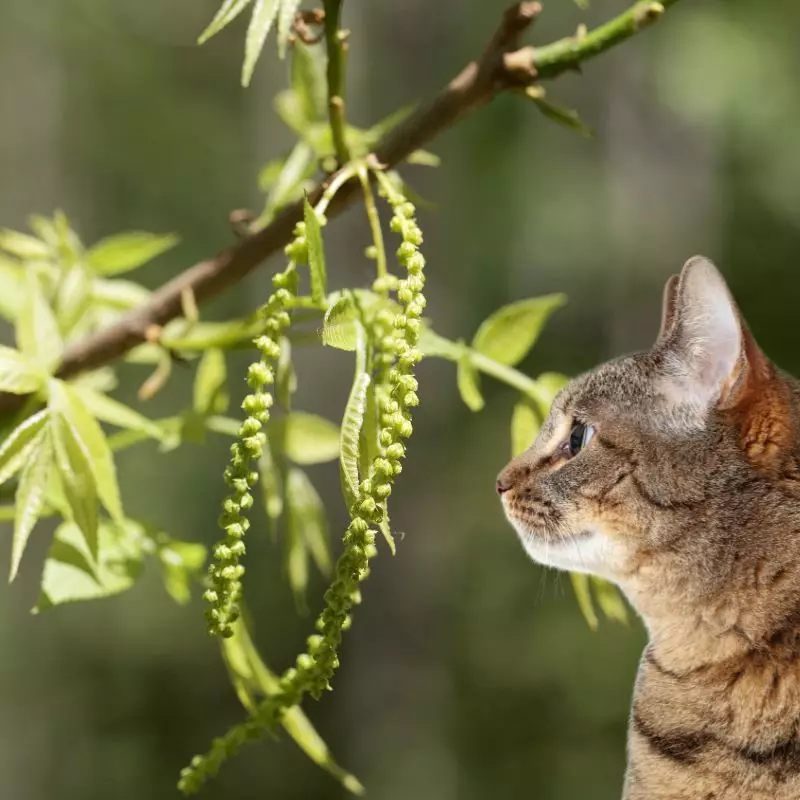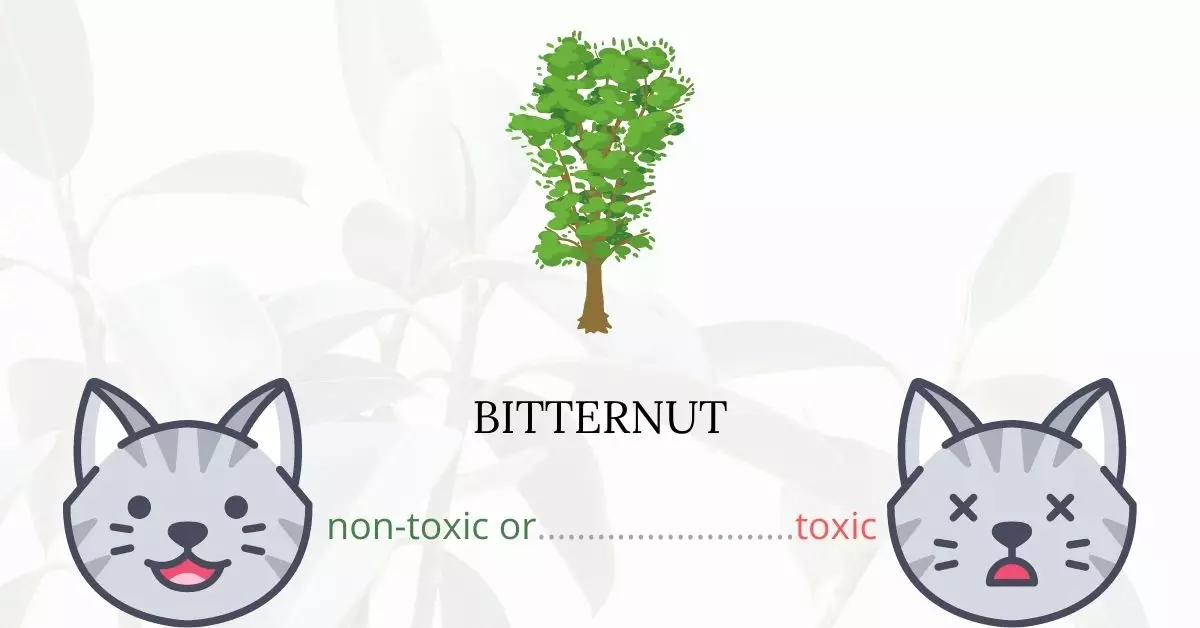Bitternut poses no toxicity risks to cats, providing reassurance to cat owners who have this plant in close proximity. According to authoritative sources like the American Society for the Prevention of Cruelty to Animals (ASPCA), this plant lacks harmful toxins that could endanger feline companions, and it is equally non-toxic to dogs and horses.
To ensure the accuracy and reliability of this information, this article was crafted in collaboration with a team of experienced Doctors of Veterinary Medicine (DVMs). Their extensive knowledge and expertise in veterinary medicine have contributed significantly to our understanding of the potential risks associated with various plants, including Bitternut, and their effects on cats. Furthermore, in our commitment to deliver precise and up-to-date information, additional research was conducted using high-authority websites such as ASPCA and PetMD for comprehensive insights on every plant discussed.
Can Cats Eat Bitternut?

Nuts are generally safe for cats to eat. Although bitternuts are not poisonous to cats, they are not suggested since the feline digestive system cannot readily consume nuts. Obesity, gastrointestinal upset, and even pancreatitis can be caused by bitternuts.
The nuts we consume often include salt, and too much salt in a cat can cause water retention and possibly renal damage. Additionally, salt is extremely harmful to cats with cardiac conditions.
Nuts can be also a choking hazard to cats due to their size and hardness.
What is Bitternut?

The Bitternut hickory tree is a huge deciduous tree that may grow up to 35 meters tall and has a trunk one meter in diameter. The leaves are pinnate, with 7 to 11 leaflets that are lanceolate in shape, with the apical leaflets being the biggest but only marginally so. The flowers are little wind-pollinated catkins that bloom in the spring. The fruit is a two to three-centimeter-long bitternut with a green four-valved cover that splits off when mature in the fall and a hard, bony shell.
Carya cordiformis, often known as bitternut hickory or swamp hickory, is huge pecan hickory with commercial stands largely north of the other pecan hickories. Bitternut hickory is chopped and sold alongside authentic hickories. It has the shortest lifespan of the hickories, lasting around 200 years.
Bitternut hickory grows in marshes and damp mountain slopes. Although it is typically found on moist bottomlands, it may also thrive in dry areas and in poor, low-nutrient soils.
Keeping Cats Away From Bitternut

Bitternut trees are commonly found outdoors. Whilst they are not toxic, it is not advisable to regularly eaten by cats.
It is still best to prevent your cats from going outside or wandering too far from your house. If your cat is outdoors, he or she is more prone to getting exposed to plants of all kinds.
Plants to Avoid For Your Cats
If you are a cat owner and unsure if the plants growing in your yard are harmful to your cats, check out this list of toxic plants for cats. You can also check our list of non-toxic plants for cats.





